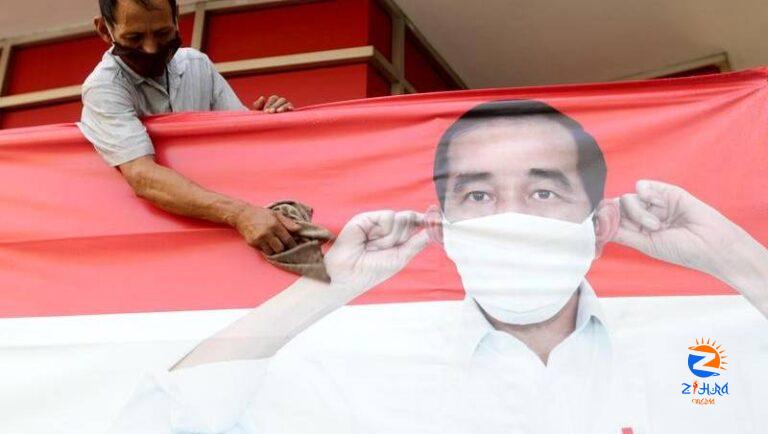
[ad_1]
news, latest-news
Indonesia is finalising emergency social restrictions aimed at containing a surge in coronavirus cases in the world’s fourth most-populous country. President Joko Widodo announced the impending tightening of rules on Wednesday, as the country reported a daily-record 21,807 infections. “Today it will be finalised because the spike is very high,” said the president, popularly known as Jokowi, noting restrictions would be applied on the islands of Java and Bali. Authorities are mulling whether to keep the tighter restrictions for a week or two weeks, he said. Indonesia has reported record rates of COVID-19 infections of more than 20,000 in recent days, in a new wave fuelled by the emergence of highly transmissible virus variants and increased mobility among the population after the Muslim fasting month. Movement curbs were tightened last week in so called ‘red zone’ areas where cases have jumped, but health experts said these have not been sufficient to stop the spread of the virus. The hospital bed occupancy ratio was 72 per cent nationally, the president said, but local authorities say rates were higher in several cities including Jakarta, where medical emergency units have been shifted to tents outside hospitals. “I ask that we all be careful and don’t let our guard down. Don’t just talk about the economy, while we don’t see the health aspect,” Jokowi said. The president has previously resisted calls from health experts for full lockdowns and warned last week curbs should be implemented so they avoid “killing” the economy. On Wednesday he also pledged to accelerate the country’s vaccination campaign to achieve a target of one million doses per day in July and two million per day in August. “There is no bargaining,” he said, noting vaccination rates had fallen short at 200,000 to 300,000 shots per day recently. Just 13 million Indonesians have received two vaccine shots. Of the country’s population of more than 270 million, 181.5 million are hoped to be vaccinated by January 2022. Australian Associated Press
/images/transform/v1/crop/frm/silverstone-feed-data/575862f9-7c5e-462d-bcc3-90b3ed99178c.jpg/r0_74_800_526_w1200_h678_fmax.jpg
Indonesia is finalising emergency social restrictions aimed at containing a surge in coronavirus cases in the world’s fourth most-populous country.
President Joko Widodo announced the impending tightening of rules on Wednesday, as the country reported a daily-record 21,807 infections.
“Today it will be finalised because the spike is very high,” said the president, popularly known as Jokowi, noting restrictions would be applied on the islands of Java and Bali.
Authorities are mulling whether to keep the tighter restrictions for a week or two weeks, he said.
Indonesia has reported record rates of COVID-19 infections of more than 20,000 in recent days, in a new wave fuelled by the emergence of highly transmissible virus variants and increased mobility among the population after the Muslim fasting month.
Movement curbs were tightened last week in so called ‘red zone’ areas where cases have jumped, but health experts said these have not been sufficient to stop the spread of the virus.
The hospital bed occupancy ratio was 72 per cent nationally, the president said, but local authorities say rates were higher in several cities including Jakarta, where medical emergency units have been shifted to tents outside hospitals.
“I ask that we all be careful and don’t let our guard down. Don’t just talk about the economy, while we don’t see the health aspect,” Jokowi said.
The president has previously resisted calls from health experts for full lockdowns and warned last week curbs should be implemented so they avoid “killing” the economy.
On Wednesday he also pledged to accelerate the country’s vaccination campaign to achieve a target of one million doses per day in July and two million per day in August.
“There is no bargaining,” he said, noting vaccination rates had fallen short at 200,000 to 300,000 shots per day recently.
Just 13 million Indonesians have received two vaccine shots.
Of the country’s population of more than 270 million, 181.5 million are hoped to be vaccinated by January 2022.
Australian Associated Press
[ad_2]